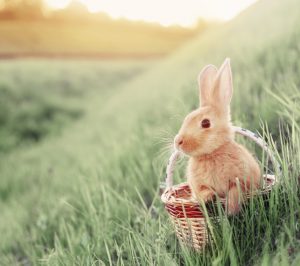Don’t Forget The Little Guys: Pocket Pet Wellness Care
 It’s been said that good things come in small packages, and pocket pet owners couldn’t agree more.
It’s been said that good things come in small packages, and pocket pet owners couldn’t agree more.
Rabbits, Guinea pigs, gerbils, ferrets, lizards, and other small animals have been steadily increasing in popularity as pets for children and families. Because they are smaller and seem easier to care for than traditional family pets such as dogs and cats, many pet owners don’t realize that their pocket pet needs routine veterinary care, too.
Why Pocket Pet Wellness Care Is Important
The truth is, small and exotic pets derive all of the same benefits from regular checkups as their canine and feline counterparts. Along with making sure they’re in good health, check-ups for pocket pet wellness is an opportunity to take care of cosmetic maintenance issues that are not possible to do at home.
In order to provide the best environment and ensure a happy, healthy life for your pet, consider the following points regarding pocket pet wellness care:
Dental care – Rabbits and other rodents don’t need help keeping their teeth maintained in the wild, as their natural diets and foraging habits keep teeth clean and short (some animals, such as rabbits, have teeth that grow continuously). Things are different in captivity, and certain pocket pets will need their teeth trimmed and/or cleaned to keep them healthy. Teeth that are too long will make it difficult and, eventually, impossible for your pocket pet to chew its food, leading to malnutrition and illness.
Nail care – Because life inside our homes provides little opportunity for pets such as lizards, birds, and guinea pigs to keep their nails naturally trimmed, some of these little guys may need help from a professional. Attempting to trim a small animal’s nails can be difficult for even the most experienced pet owner, so the occasional trip to see us for a trim will keep those nails at the appropriate length. Nails that are allowed to grow too long can be painful and, along with other problems, will prevent your pocket pet from walking properly. For birds, overly long nails will prevent them from being able to feed themselves, as well as climb to and properly grip a perch.
Beak and wing care – For birds, a beak that is too long will make eating and self- grooming difficult or impossible, so the occasional beak trim is an important part of a caged bird’s cosmetic care. Wing trims are another cosmetic procedure that can be done to prevent your bird from flying away. Both of these trims must be performed properly and should be done only by a qualified veterinarian.
Environmental considerations – Factors such as bedding, cleanliness, temperature, and humidity can have huge impacts on your pocket pet’s quality of life. Your veterinarian can help you come up with a plan to make your pet’s living quarters as comfortable and healthy as possible.
Nutrition – All animal species have their own specific nutritional requirements for optimal health and pocket pets are no different. Your veterinarian will be happy to help you formulate a plan that meets the nutritional needs of your pet.
Pocket Pet And Exotics Care At Lone Tree Veterinary Medical Center
At Lone Tree Veterinary Medical Center, we believe that all pets deserve access to high quality medical care on a regular basis. We are pleased to offer preventive veterinary care for your small pet, and will refer you to a qualified exotic pet veterinarian should your little guy or gal become sick or need specialized care.
We are here for your pet every day, so stop in and see us soon!



